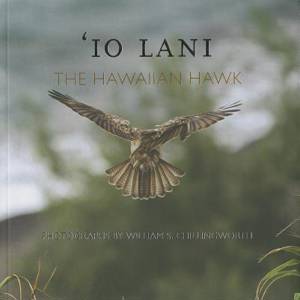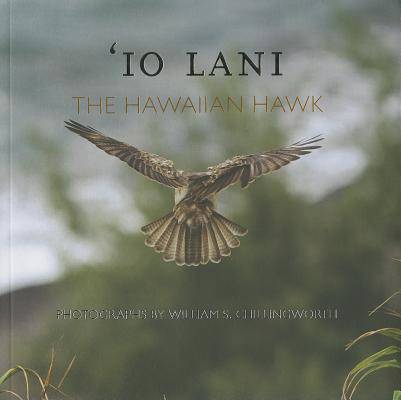
- Afhalen na 1 uur in een winkel met voorraad
- Gratis thuislevering in België vanaf € 30
- Ruim aanbod met 7 miljoen producten
- Afhalen na 1 uur in een winkel met voorraad
- Gratis thuislevering in België vanaf € 30
- Ruim aanbod met 7 miljoen producten
IO Lani
The Hawaiian Hawk
William S Chillingworth, John L Culliney, Nathan NapokaOmschrijving
A symbol of Hawaiian royalty--indomitable, swift, strong, and fierce--'io, the Hawaiian hawk, Buteo solitarius, also represents a Hawai'i that has remained unchanged from its earliest days of wild splendor. Blown from their customary migratory route between North America and South America, the first birds arrived before human voyagers discovered the Islands over a thousand years ago. Although there are occasional vagrants (osprey, sea eagles, and peregrines), the Hawaiian hawk remains the only diurnal raptor found on the islands of the Pacific. Once present on O'ahu, Kaua'i, Moloka'i, as well as Hawai'i Island, Buteo solitarius is now a threatened species and found only on the island of Hawai'i; its population estimated to be less than three thousand birds.
W. S. Chillingworth's photographs, evidence of his deep reverence for the bird, a creature that is the most vivid expression of life, are both transcendent as images and a valuable contribution to the study of this rare native. The photographs remind us of our kinship with wild creatures, many of them clinging to an increasingly precarious existence, as well as of our responsibility to preserve and protect them. Together with accompanying essays by John L. Culliney and Nathan Napoka that are equally scholarly and poetic, the images give an illuminating sense of the 'io in its island refuge. Despite the inevitable encroachment of the modern world, the Hawaiian hawk has until now managed to survive, a reminder of a not-so-distant past of chiefly kingdoms and isolated volcanic archipelagoes. Mindful of Hawaii's unfortunate distinction as the extinction capital of the avian world, this book encourages and inspires us to protect and ensure this singular creature's survival. Accompanying the essays is a foreword by writer and cultural representative Hannah Springer.Specificaties
Betrokkenen
- Auteur(s):
- Uitgeverij:
Inhoud
- Aantal bladzijden:
- 80
- Taal:
- Engels
Eigenschappen
- Productcode (EAN):
- 9780615879291
- Verschijningsdatum:
- 30/04/2014
- Uitvoering:
- Paperback
- Formaat:
- Trade paperback (VS)
- Afmetingen:
- 221 mm x 215 mm
- Gewicht:
- 335 g

Alleen bij Standaard Boekhandel
Beoordelingen
We publiceren alleen reviews die voldoen aan de voorwaarden voor reviews. Bekijk onze voorwaarden voor reviews.












